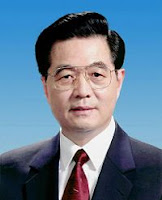Intellectual Property Law in China, of course, is not an insulated part of Chinese Law. A fortiori, it is an integral part of it. So those who are interested in IPR in China, could take notice to China’s legal reforms of the last thirty years.
Ms Sky Canaves, lead writer for the WSJ’s China Journal, visited the Foreign Correspondents Club of Hong Kong Thursday to give the highlights Mr Jerome Cohen’s speech. Mr Cohen is a China Legal Expert, author, professor and Of Counsel for Paul, Weiss, Rifkind, Wharton & Garrison LLP.
In her article Ms Canaves reports what Mr Cohen said about the theory advocated by China’s president Hu Jintao since December last year, called: ‘The Three Supremes’, which undermines a rule of law, at least from a Western perspective:
“The three supremes are, in descending order: the party, society and… the constitution and the laws. The new supreme court president has said with respect to death penalty cases, for example, that the feelings of the masses are number one, when courts have to make decisions about whether people live or die. Number two is social conditions, and number three is the legal law. This has demoralized many professionally oriented members of this rising legal class [and they have been] subject to intensive political indoctrination in the theory of three supremes.“
This does not bode well, also in relation to the impartiality and independency of the IPR law judgements, that might not decide about life and death situations, but certainly can have a crucial impact on China’s society.
Read Ms Canaves’ interesting article here.


